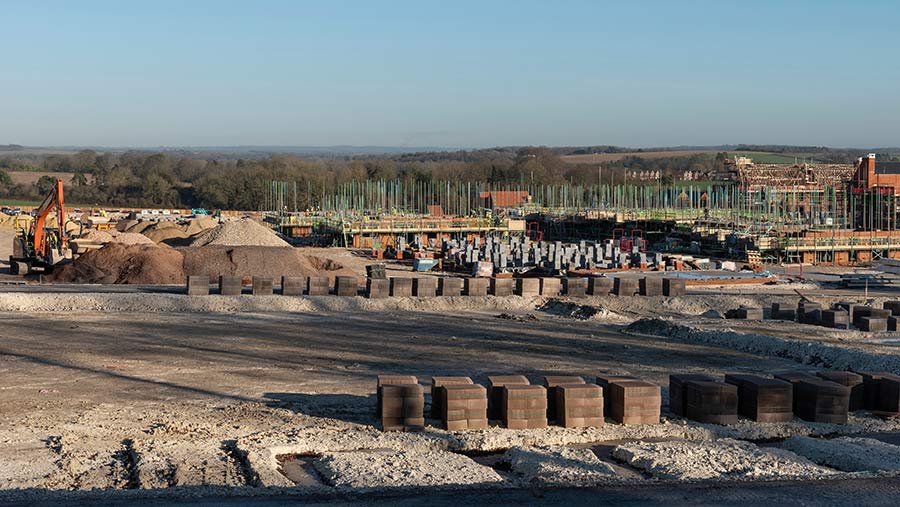How to tackle sales of farmland with multiple owners
 © Petert2/Adobe Stock
© Petert2/Adobe Stock Land being owned by multiple farmers should not be an obstacle during a proposed development deal, experts have confirmed.
Martyn Dobinson, partner at accountant Saffery Champness, said often there are cases where an area of land that a developer wants to buy is owned by multiple neighbours.
If each of those owners wants to sell, this situation shouldn’t be a barrier.
See also: Business Clinic: Is land developer’s valuation too low?
Mr Dobinson advises on the options for structuring these sales.
Equalisation agreements
Owners share sale proceeds in agreed proportions regardless of who sells the land.
These amounts are generally based on the split of the market value of the land.
This agreement protects each owner’s position and guarantees that they receive their fair share from the deal.
It also prevents individual landowners from “holding one another to ransom’’.
For instance, if one landowner owns the land where high-end housing has been earmarked and another the section identified for affordable housing, but the development can’t proceed without all the land.
However, double taxation can arise under an equalisation agreement.
A seller will be subject to capital gains tax (CGT) on the gain arising when they sell their land.
When they subsequently share proceeds with the other landowners, in accordance with the equalisation agreement, those other landowners will then also be subject to CGT on the same proceeds.
Issues with double taxation can be avoided by using, for example, a cross option or cross covenant as an alternative.
Cross options
Each landowner grants an option to the other to acquire a share in their land.
This option is exercised when planning permission is granted, but at the land’s market value when the option was granted.
For CGT purposes, the granting of the option is treated as a disposal; each party is subject to CGT on the value of the option.
There is therefore good reason for the options to have a low value, which generally means that the options must be granted when the land still has agricultural value only and before “hope” value accrues.
The sale won’t qualify for business asset disposal relief (BADR).
Careful VAT planning is required to ensure no single landowner is left disadvantaged.
Cross covenants
Each landowner grants a restrictive covenant to the other landowners and this prevents any development without the consent of the holders of that covenant.
The developer must pay the holders to release the covenant for the development to proceed.
The granting of the covenant is again a disposal in terms of CGT – each party is subject to that tax on the value of the covenant received so it is essential that the covenants have a low value.
A cross covenant doesn’t qualify for BADR.
Payments for lifting a restrictive covenant are exempt from VAT.
Land pooling
This can be an effective solution as each landowner contributes their land into a bare trust, effectively exchanging all their interest in their own land for a proportionate undivided interest in the whole developable area; the proportionate interest is based on the respective value of the land contributed.
When the land is sold, each owner will be selling their proportionate share and the proceeds are split accordingly.
As there are no payments between landowners, there is no double taxation.
There is established case law supporting the position of no charges to CGT or stamp duty land tax (SDLT) when a bare trust is created.
However, expert advice is required to value the pooled interests and proportionate interests in the pooled land, and care in preparing the documentation.
There are downsides to land pooling.
For instance, the landowners will own different interests and will therefore lose any inheritance tax or CGT reliefs that they may have earned due to the length of time they had held their land.
BADR could however be secured by the landowners farming the pooled land in partnership.
If the development does not proceed and the land is not sold, the bare trust may have to be unwound, which can be complicated.
Owners who contribute land to the bare trust should register for VAT as a partnership to allow VAT to be recovered on costs and to ensure the correct taxable person is bringing VAT on the sale of the land to account.
